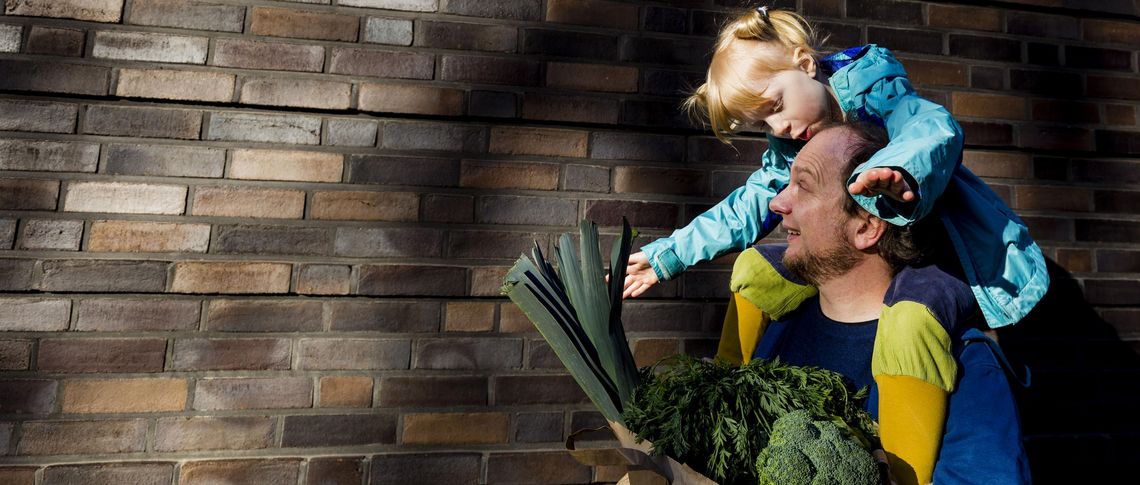We are living in a time of conflict and war. Broad swathes of society are afflicted by massive uncertainties and worries. In the shadow of this, traditional images of men are being celebrated in the media. Meta boss Mark Zuckerberg, for example, has called for more ‘masculine energy’ in the workplace, while Elon Musk styles so-called ‘bro culture’ as an innovation strategy. In the United States, podcast heavyweight Joe Rogan is a possible king-maker for Donald Trump, not despite, but because of the fact he propagates masculine attitudes. This return of the ‘strong man’ gives expression to a political climate in which authoritarian and anti-feminist narratives are gaining ground. Not only in the United States, but also in Europe and Germany.
We need to take this seriously and ask ourselves self-critically: what have progressives done in recent years to make so many men turn away from them? It seems that many men feel that feminism has nothing to offer them. Indeed, in some instances there has been a massive counter reaction. But true equality can be achieved only with men’s involvement. What would a manliness look like that was in line with women’s emancipation, justice and progress?
Caring masculinities
While feminist positions have increasingly found their way into mainstream discourse over the past two decades, finding a place in pop culture, conservative and reactionary forces have mobilised successfully against such progress. There are countless clips on social networks depicting what makes a ‘real man’: dominance, assertiveness, physical strength and control over his emotions. But these imaginaries do not just contradict feminist ideas of equal rights. They also serve as a refuge for insecure male identities. So-called masculism presents itself as a political movement that pursues men’s interests. In fact, however, it deploys an anti-emancipatory vocabulary that shores up existing privileges and seeks to suppress feminist achievements. It is no coincidence that masculist positions often overlap with nationalist, authoritarian and anti-democratic discourses.
In these circumstances, anti-feminism has developed into a highly effective political tool. It offers banal ripostes to complex societal questions and feeds individual frustrations into collective resentment. Young men in particular feel attracted to this, often because no alternative role models are available. But why are progressive forces finding it so difficult to respond? Part of the answer lies in the discrepancy between aspiration and reality. While the public debate appears to be more progressive than ever, many people, both men and women, feel overwhelmed by the exigencies of everyday life. Gender equality across the board remains a distant prospect, and still requires constant reaffirmation.
A progressive society requires an open dialogue about masculinity, with clear standards but without blanket condemnation.
The changing demands imposed on men represent enormous challenges for many. Modern men are supposed to be successful at work, present in family life, empathetic partners, caring fathers as well as fun and reliable friends. It is scarcely possible to meet all these expectations, especially when there are no reliable social role models to offer guidance. Of course, it could be objected that women have always had to cope with contradictory demands, ranging from loving mother to successful career woman. In contrast to men, however, in recent decades they have enjoyed the support of a burgeoning feminist infrastructure that has actively promoted new role models. Men are not so fortunate. On the other hand, there is a real willingness to change. Many men would like to be more sensitive, more approachable and more of a partner, but they lack spaces in which they can learn stress-free. Criticisms of outdated behaviour patterns are indispensable, but hand in hand with encouragement. Moralistic finger-wagging is more likely to lead to a relapse than to development. A progressive society requires an open dialogue about masculinity, with clear standards but without blanket condemnation.
There have been many debates in recent years on the role men could – or should – play in feminism. It is clear that an equal society can be achieved only if men also recognise and support feminist goals, and make a serious effort to absorb them into their own behaviour. But this view is by no means uncontroversial. Some feminists doubt whether male voices even have a place in a discourse historically aimed at overcoming patriarchal power relations.
A particular object of criticism here is a form of pro-feminist self-promotion in which men back feminism publicly, but without really reflecting on their own privileges or striving for real behavioural change. Such symbolic politics does not do justice to feminism’s transformative potential and may even damage it. At the same time, many men are clearly overwhelmed when confronted with feminist criticisms. Terms such as ‘toxic masculinity’ often provoke a defensive reaction, Instead of engaging in critical discussion many men feel personally attacked or even just switch off. This brings to light a key problem. Over the decades the feminist movement has developed multifarious positive identities for women. Men, however, lack comparable models that might open up new roles for them beyond the old dominance structures. The few attempts that have been made to establish progressive notions of masculinity have had little impact on the wider society.
Men also benefit from being liberated from rigid norms of masculinity.
A key area in which progressive masculinity could really emerge is care work. Although the number of fathers taking parental leave is rising, generally speaking it is still mothers who remain at home much longer and perform the bulk of care work. This structural imbalance not only contributes to economic inequality between the sexes, but reinforces old gender role patterns. In response, politicians have been discussing new incentive schemes, such as extended partner months for parental benefits or tax concessions for a more equal distribution of family duties. But care work is not confined to the family sphere. In an ageing society the need for care and nursing staff is rising rapidly. There are also labour shortages in social occupations such as childcare, education, health care and psychosocial counselling, especially with regard to male workers.
This is where the concept of caring masculinities comes in, that is, a masculinity defined by caring, emotional intelligence and social responsibility. Men who opt to pursue one of the care professions not only help to relieve labour shortages, but also serve as role models for a new gender dispensation. Studies show that people in successful relationships are healthier, happier and live longer. Men also benefit from being liberated from rigid norms of masculinity. But for that to succeed, care work needs to be valued more by society and in the economy. It can no longer be regarded as secondary or female work. It needs to be recognised as a central resource in a functioning democracy.
Men have to be addressed as agents – not merely as a problem, but as part of the solution.
Certainly, in the medium term, gender equality is not a zero sum game. Men lose nothing when women have equal rights. On the contrary, in an equal society everyone is freer, more secure and more fulfilled. That is of course conditional on men taking on their share of responsibilities: in the family, in the workplace and in politics, but not least also in their own behaviour. The current state of affairs is contradictory. While reactionary forces continue to gain ground, progressive actors are rarely able to organise new societal majorities. They remain trapped in a discursive silo. To change this, they need cultural bridgeheads, not just political strategies. Men have to be addressed as agents – not merely as a problem, but as part of the solution.
The pursuit of an emancipated masculinity is far from complete. It remains open, contested and dynamic. But it is also necessary, not only in the interests of gender equality, but also as a solution to the authoritarian challenges of our time. Feminism, which has long been intersectional, diverse and democratic, can offer orientation. But men need to do more than just sign up; they need to actively support it.






